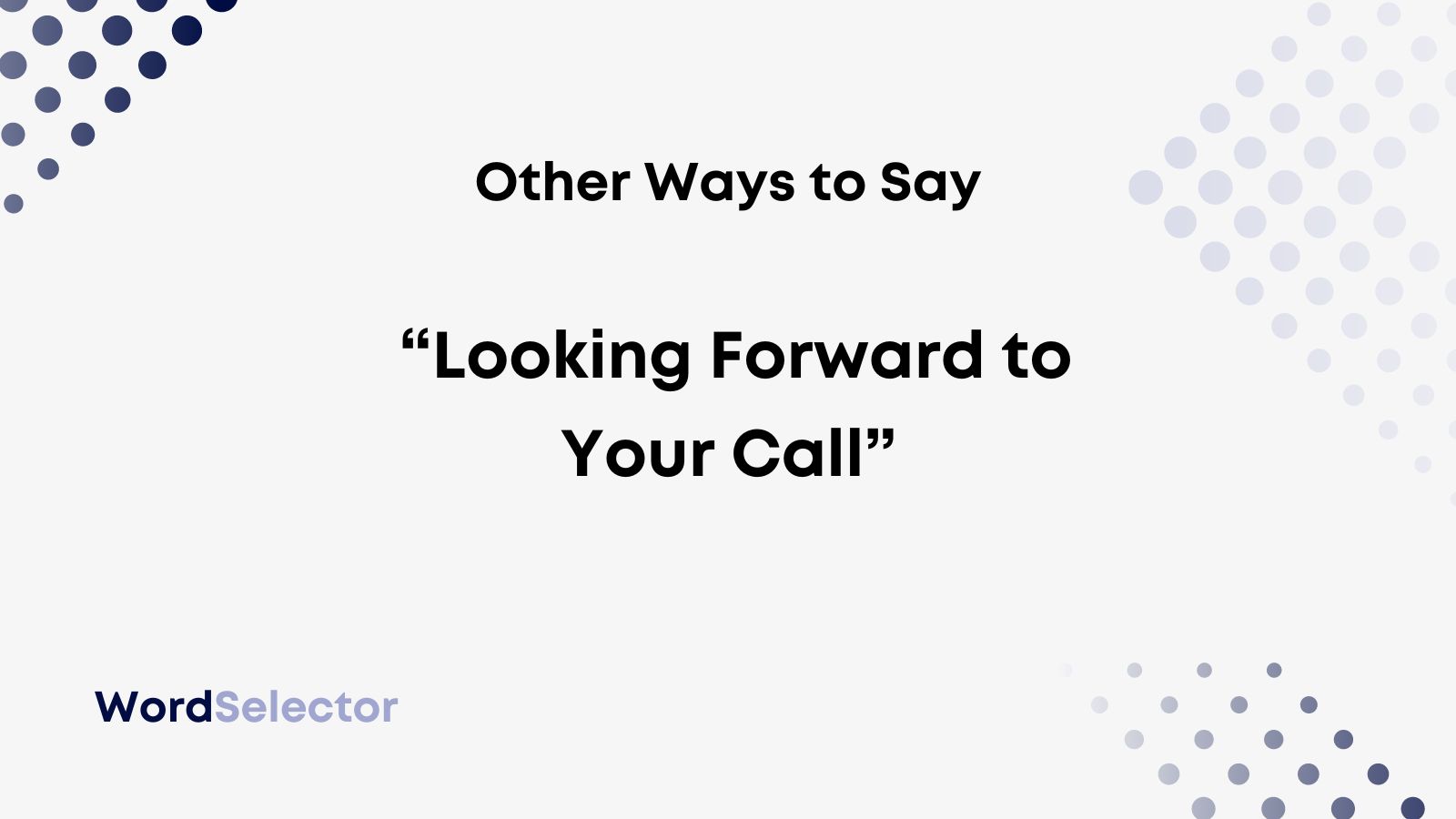If you’re looking forward to a call with someone, you should convey an appropriate level of excitement.
“Looking forward to your call” is probably the first phrase that jumps into your head, but it sounds too generic.
Luckily, this article will show you some better examples of how to say you are looking forward to a call!
Other Ways to Say “Looking Forward to Your Call”
- I’m keen to have a conversation with you
- I eagerly await our chat
- I’m excitedly anticipating your call
- I’m eagerly looking forward to hearing from you
- I can’t wait for you to call
- I’m excitedly awaiting your call
- I’m excited to speak with you
- I can’t wait to have a conversation with you
- Excited to receive your phone call
- I am looking forward to the meeting with you
- Looking forward to the discussion
KEY TAKEAWAYS
- “Looking forward to your call” works well in formal emails before you are scheduled to call someone.
- “I’m keen to have a conversation with you” is a great formal alternative that shows you’re excited about an upcoming meeting.
- Try “I eagerly await our chat” for a more informal phrase that works well here.
You should read on to learn how to say “looking forward to your call” professionally and politely. We’ve touched on the best formal and informal options to help you here.
Alternatively, you can skip to the final section. We’ve explained whether it’s correct to use “looking forward to your call” in the first place.
I’m Keen to Have a Conversation With You (Formal)
You can use “I’m keen to have a conversation with you” when looking forward to someone’s call. It’s a great way to sound formal and polite when you expect to hear from someone.
We recommend trying it when contacting a client. It’s a useful way to let them know how keen you are to get to know them better.
Also, business meetings over the phone can be simpler ways to work out plans moving forward. So, it’s worth showing how enthusiastic you are about a phone call. You never know what business it might lead to!
Generally, the phrase is quite respectful. That’s why it tends to work best when contacting clients. It also works well when emailing new employers who you’re trying to impress.
You can also use this email sample to help you:
Dear Mr. Smith,
I’m keen to have a conversation with you, so I look forward to it. Please let me know if you need to change the time at all.
Best regards,
Sam Walters
I Eagerly Await Our Chat (Informal)
For something more informal, try “I eagerly await our chat.” It still works well and relates to an upcoming phone call, but it gives off a more friendly and conversational vibe.
Try using it when speaking to customers. It’s a great way to keep things more light-hearted with them.
We recommend using it if you work for a more casual company. It shows there’s less pressure on you to send emails with overly complicated or professional language.
Don’t worry; the phrase itself still belongs in a formal email. It’s just a little more conversational, making it more suitable when you want to improve relations with the recipient.
You can review this sample email if you’re still unsure:
Hi Katie,
I eagerly await our chat. There are some things that I’d really love to discuss with you if that’s okay.
Yours,
George Miller
Is It Correct to Say “Looking Forward to Your Call”?
It is correct to say “looking forward to your call.” It works well in formal emails because it shows you’re excited to talk to someone over the phone.
It’s professional when it refers to a phone call meeting. We recommend using it regardless of who the recipient is if you’re looking forward to having a chat with them.
When using “looking forward,” you must always use “to.” “To” is the correct preposition here, so do not try including anything else (such as “for”). For instance:
- Correct: Looking forward to your call.
- Incorrect: Looking forward for your call.
Also, you may come across both “look” and “looking.” You can change the verb form based on the pronoun usage. For example:
- I am looking forward to your call.
- I look forward to your call.
Using “am” requires the gerund form “looking.” Otherwise, just “I” on its own means you can use “look” in the infinitive form.
Here are some extensions you can also use to spice things up:
- I am looking forward to your call
- We are looking forward to your call
If you use “we are,” it implies you represent an organization. It’s a great way to sound more professional in an email.
Also, these variations are acceptable:
- Looking forward to the call
- Looking forward to our call

